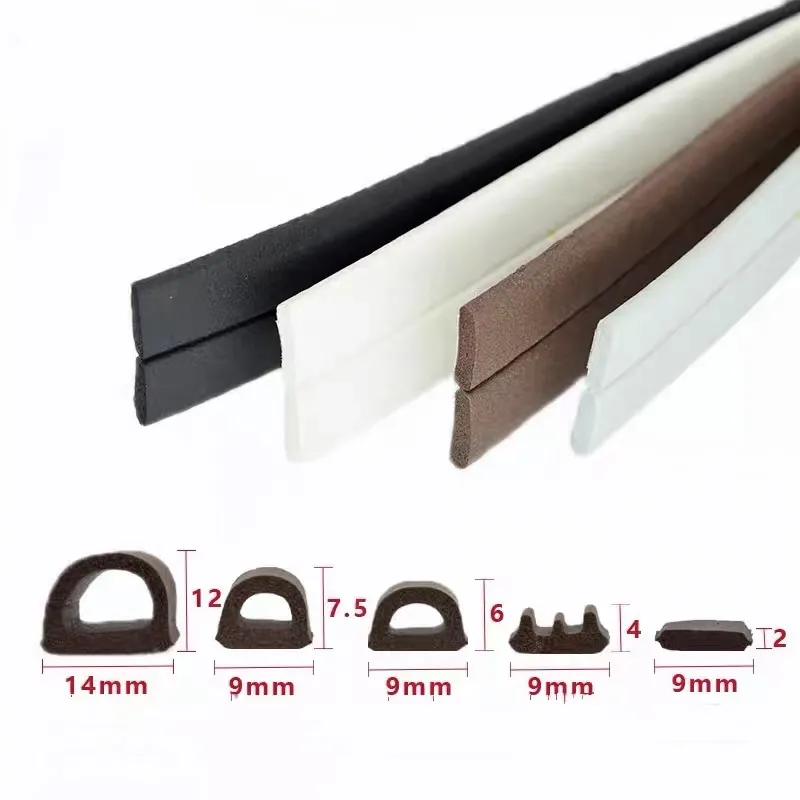Choosing the Right Thick Weather Stripping for Better Insulation and Energy Efficiency
Understanding Thick Weather Strips A Comprehensive Guide
When it comes to energy efficiency and maintaining a comfortable home environment, the importance of effective sealing cannot be overstated. One of the most effective solutions available on the market today is the thick weather strip. This versatile product serves as a barrier against the elements, significantly enhancing insulation while reducing heating and cooling costs. In this article, we’ll explore what thick weather strips are, their benefits, and how to install them effectively.
What is Thick Weather Strip?
Thick weather strips are specially-designed materials used to seal gaps around doors, windows, and other openings in a building’s structure. Made from durable materials like foam, rubber, or vinyl, these strips are typically thicker than standard weather stripping, providing superior insulation and sealing capabilities. The main goal of thick weather strips is to block drafts, moisture, and noise while improving energy efficiency.
Benefits of Thick Weather Strips
1. Energy Efficiency One of the most significant advantages of using thick weather strips is their ability to reduce energy costs. By minimizing air leakage, these strips help maintain the internal temperature of your home, reducing the need for heating and cooling systems to work overtime.
2. Enhanced Comfort With improved insulation, thick weather strips help maintain a consistent indoor temperature. This means fewer cold drafts during winter months and less heat accumulation during summer, leading to a more comfortable living environment.
3. Moisture Control In addition to blocking air leaks, thick weather strips can also help prevent water infiltration. This is essential in avoiding mold growth and structural damage caused by moisture. Proper sealing can protect interior walls, floors, and furniture from the destructive effects of humidity and dampness.
4. Noise Reduction For those living in noisy environments, thick weather strips can significantly dampen sound transmission. The denser material creates a barrier that helps reduce the noise from outside, making your home a quieter place to relax.
5. Easy Installation Thick weather strips are usually designed for easy installation, often featuring adhesive backing that allows for quick and secure application. Homeowners can typically install these strips without needing professional assistance, saving time and money.
How to Install Thick Weather Strips
Installation of thick weather strips is a straightforward process
. Here’s how to do itthick weather strip

Step 1 Measure the Gaps
Begin by measuring the gaps around the door or window frame where the weather strip will be applied. It’s essential to have accurate measurements to ensure an effective seal.
Step 2 Clean the Surface
Before applying the weather strip, clean the surface thoroughly to remove dust, dirt, and old adhesive. This ensures that the strip adheres properly and creates a solid seal.
Step 3 Cut the Weather Strip
Using the measurements taken earlier, cut the thick weather strip to the desired length. Be sure to make clean cuts for a better fit.
Step 4 Apply the Weather Strip
Peel off the backing from the adhesive side of the weather strip and carefully press it into place along the door or window frame. Make sure to apply even pressure to secure it properly.
Step 5 Test the Seal
Once the weather strip is in place, close the door or window to test the seal. Check for any drafts or gaps, and make adjustments as necessary to ensure a tight seal.
Conclusion
Thick weather strips are a simple yet effective solution for enhancing energy efficiency, comfort, and moisture protection in any home. By investing in quality weather stripping, homeowners can save on energy costs and create a more pleasant living environment. Whether you are tackling a home improvement project or simply looking to eliminate drafts, thick weather strips are an excellent addition to your home maintenance toolkit. With easy installation and a host of benefits, it's time to consider weather stripping as a crucial component of your home’s insulation strategy.
-
Under Door Draught Stopper: Essential ProtectionNewsJul.31,2025
-
Garage Door Seal and Weatherstrips for ProtectionNewsJul.31,2025
-
Edge Banding Tape for Perfect EdgesNewsJul.31,2025
-
Table Corner Guards and Wall Corner ProtectorsNewsJul.31,2025
-
Stair Nose Edging Trim and Tile Stair SolutionsNewsJul.31,2025
-
Truck Bed Rubber Mats for Pickup BedsNewsJul.31,2025
-
Window Weather Stripping for Noise ReductionNewsJul.29,2025